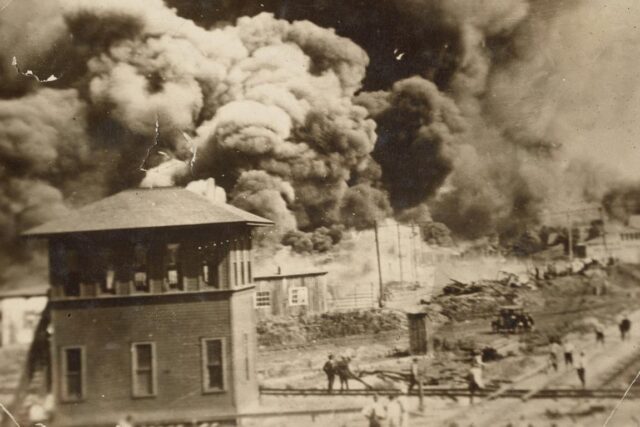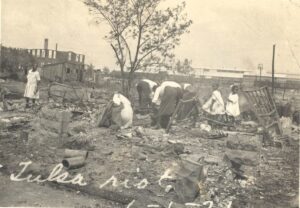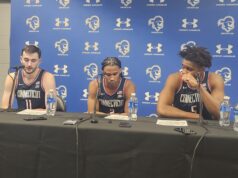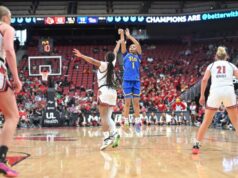
Oklahoma City–As the spotlight shines on Oklahoma City for Game 5, it’s important to remember that this land holds more than just basketball history — it holds the memory of a once-flourishing Black community known as Black Wall Street.
Long before the roar of Thunder fans filled the arena, Tulsa’s Greenwood District stood as a powerful symbol of Black excellence, enterprise, and resilience. In the early hours of June 1, 1921, that vibrant community was devastated in what remains one of the most brutal acts of racial violence in U.S. history.
Over 300 Black residents were killed, countless others were wounded, and more than 1,200 homes and businesses were destroyed as white mobs unleashed terror — looting, bombing, and setting fire to a community that had built wealth, pride, and independence in the face of systemic racism.
Today, as we cheer on teams and celebrate competition, let us also honor the legacy of those who came before — those who turned a corner of Oklahoma into a beacon of Black prosperity, and whose stories must never be forgotten.
The lesson? We are not just survivors—we are builders. And it’s time to build again.
Reclaiming the Blueprint
The story of Tulsa is not just a tragedy; it is also a blueprint for what we can achieve when we invest in ourselves. Before the massacre, Black doctors, lawyers, entrepreneurs, and educators in Greenwood built a self-sustaining ecosystem that thrived despite segregation and systemic racism. The dollar circulated within the community for days. There were banks, newspapers, hotels, and schools—all Black-owned.
We must reclaim that spirit—not with nostalgia, but with strategy.
Black America needs to fund its own future.
Strength in Self-Funding and Ownership
We cannot wait for rescue. True empowerment comes when we control our institutions, from banks, media outlets, to schools and tech ventures. If every Black American contributed even a small, consistent portion of their income to a national community fund, we could finance our own businesses, build health centers, own farmland, invest in innovation, and support legal defense for our people.
This is not charity; it’s survival. It’s legacy. It’s power.

HBCUs Are the Heartbeat of Progress
Historically Black Colleges and Universities (HBCUs) have been underfunded for generations despite producing a disproportionate number of Black doctors, engineers, judges, and leaders. These institutions must not only be preserved—they must be empowered.
Imagine a future where our brightest minds don’t need to compete for funding, where research labs are run by Black scientists studying our unique challenges, and where innovation flows from campuses that understand our history, culture, and potential.
HBCUs should be at the center of the new Tulsa—intellectually, economically, and spiritually.
The New Tulsa: Not Just a Place, But a Movement
We don’t need to rebuild Greenwood on the exact soil where it was destroyed. The new Tulsa is not a zip code—it is a mindset, a commitment to one another. It is Black people choosing solidarity over competition, collaboration over isolation.
We must form strategic alliances—across states, professions, and generations. We must build intentional communities where Black safety, wellness, wealth, and education are prioritized. Technology allows us to network across the country in ways Greenwood could never imagine. Let’s use that power to pool resources, start co-ops, back each other’s businesses, and teach our children that their inheritance is excellence.
A Future Built on Unity
Tulsa showed us what we’re capable of—and what happens when we’re seen as a threat for daring to prosper. But it also showed us something deeper: that our greatest strength is each other.
We honor the ancestors of Greenwood not just by remembering what was lost—but by building what they dreamed of. That means doing the work: funding our projects, supporting our schools, believing in our own talent, and never again allowing our future to rest in someone else’s hands.
Let Tulsa be our turning point—not our tombstone.





